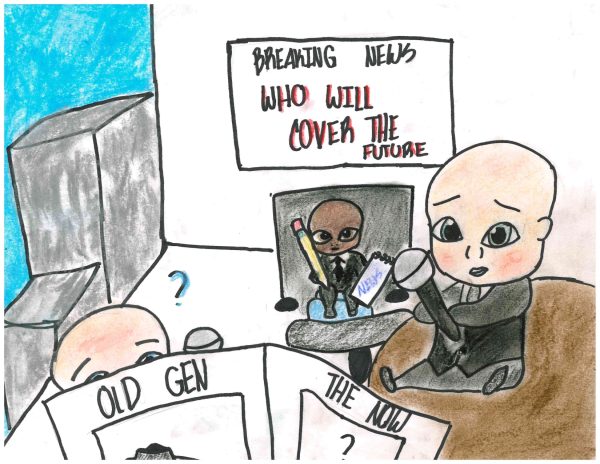Christmas gift giving changes with age
Many people who celebrate Christmas give and receive gifts. As age increases, these gifts tend to become less personal and their sentimental value drops.
We experience changes in our personality when growing older,—what we like to do and our ability to communicate develops—that have an impact on what gifts we are given.
For those of us that celebrate Christmas, I’m sure we have all received gifts.
I can still feel the joy I got when running toward the tree on Christmas morning to see the gifts surrounding it.
I can still remember how I felt when I would stand on a chair that I took from the kitchen to reach the mantle of my fireplace where the stockings hung from, filled with small gifts.
I long for that feeling again, but this is simply just the way it is.
There are multiple factors that contribute to this change.
One of them being an individual’s sense of self.
When we are very young, around kindergarten-age, we usually have ideas about who we want to be.
“What do you want to be when you grow up?” is a question frequently asked.
Many throw out jobs like being a fireman, astronaut and princess.
These “careers” can give parents a direct route toward what gift to get their child.
The fireman can get a toy firetruck.
The astronaut can receive a space suit to dress up in.
The princess can be gifted a tiara and gown.
According to Developmental Psychologist Erik Erikson, when a child is around 12 years old, they hit the “identity versus role confusion stage” of their psychosocial development.
This stage lasts until they are about 18 years old. At this point in life, they’re trying to figure out who they are and what they want to do with their lives. It’s not as simple as “I want to be a fireman” anymore. Teenagers can close off from their parents as they try to find themselves.
This lack of communication leads to a parent not knowing what their child would want as a gift, so they may end up gifting stereotypical and boring things like socks, mugs and gift cards.
These lack-luster gifts are also commonly given by relatives who are not members of the immediate family.
People like aunts and uncles can easily find children’s toys and purchase them for gifts, but struggle to give appropriate gifts to their teenage nieces and nephews.
A study commissioned by Nordstrom’s Trunk Club found that “a person over 55 is more than twice as likely to consider themselves a terrible gift giver than anyone in their 20s and 30s.”
There are no items branded as teenagers’ toys for them to buy, so they resort to money or gift cards. No one wants to receive presents like these that have no real value to them.
The thought process behind the gift matters just as much as the gift itself. This is why I paint and create most of the presents I give out.
I want people to know that I care about them.






